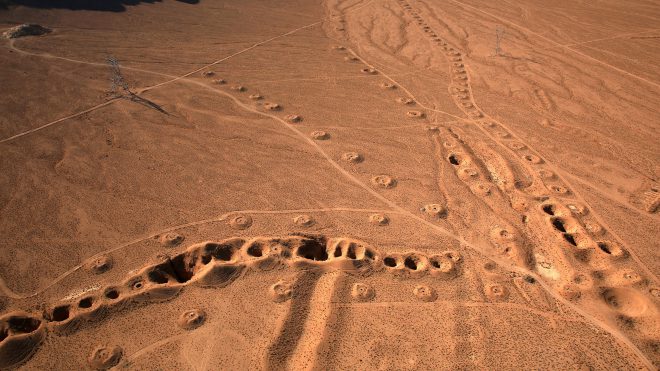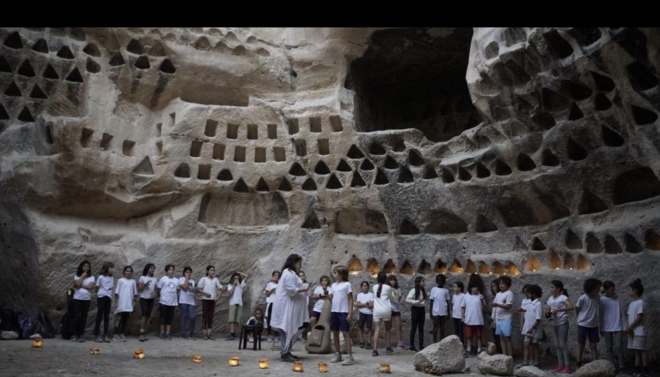 When we think of the environment today, the West looks like the clear leader. But did you know that some of the world’s most important discoveries originated in the Middle East?
When we think of the environment today, the West looks like the clear leader. But did you know that some of the world’s most important discoveries originated in the Middle East?
The Middle East, perhaps because of its challenging environment, has seen the genesis of many environmental discoveries and techniques. Some of these are so ancient and ubiquitous that we take them for granted: domestic animals; agriculture; and of course cities. The five discoveries listed here range in age from seven thousand years to cutting-edge, and yet they all remain important today.
Irrigation qanats from Iran

The Persian Qanat: Aerial View, Jupar
Agricultural irrigation has been invented at many times and places. However, by far the earliest civilizations to use irrigation were the Egyptians and Mesopotamians.
Irrigation systems in the fertile crescent were used to raise barley in otherwise arid land; they date back to at least 5,000 BC, and quite possibly earlier. Some of these systems, such as the qanats in Iran, are still in use today after nearly 3000 years of operation.
This very long history has been fraught with difficulties, and middle eastern societies have wrestled with problems of line failure, evaporative loss, and salinization. Today, for instance, Israel produces some of the most efficient point-irrigation technology in the world.
Windmills of Yadz

Windmills did not appear in Europe until the 1200s, but they are mentioned in Persian texts as early as the 600s AD, and al-Masudi’s description of Sistan in 950 AD makes it clear that they were already commonplace in that region. (It seems likely that waterwheels are also of Middle Eastern origin, but the earliest known examples are Roman.)
The vast bulk of all wind power, historically, has been used to drive sailing vessels. Still, after a millennium and a half, fixed-point wind power remains one of the most promising methods of generating clean energy.
Harvesting Fertilizer from Doves

Dovecoats in Isfahan
The famous medieval dovecotes or pigeon towers of Esfahan, in Iran, are usually regarded as architectural attractions. But they are also the most visible part of a larger technology: harvesting fertilizer.The purpose of the dovecotes is to harvest nitrogen and phosphorus from pigeon droppings, and replenish the marginal soils of the region.
A related, though less dramatic technique is to graze sheep and goats over gardens after the harvest. There is an important environmental lesson here.
Just as early societies struggled to avoid using high-quality fertilizer as low-quality fuel, modern societies struggle to recycle livestock waste, while we simultaneously expend large sums on producing synthetic fertilizer.

Dovecoats in Israel
Reforestation and Erosion Control

Ein Gedi, Israel
The Middle East was heavily deforested by the dawn of history, and combatting erosion and desertification have been constant challenges. It has long been both the birthplace and the best testing grounds for erosion control techniques, ranging from ancient terracing to modern synthetic, modular water diversion blocks.
Israel has run a particularly successful reforestation campaign in the last half-century, being one of relatively few countries worldwide to show a net gain in forest cover. Israeli immigrant Moshe Alamaro has also been one of the major proponents of aerial reforestation, using repurposed military technologies to plant seedlings in remote or hard-to-access regions.

